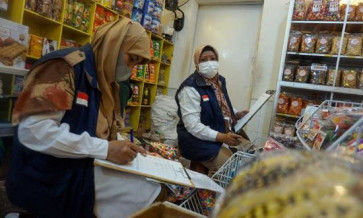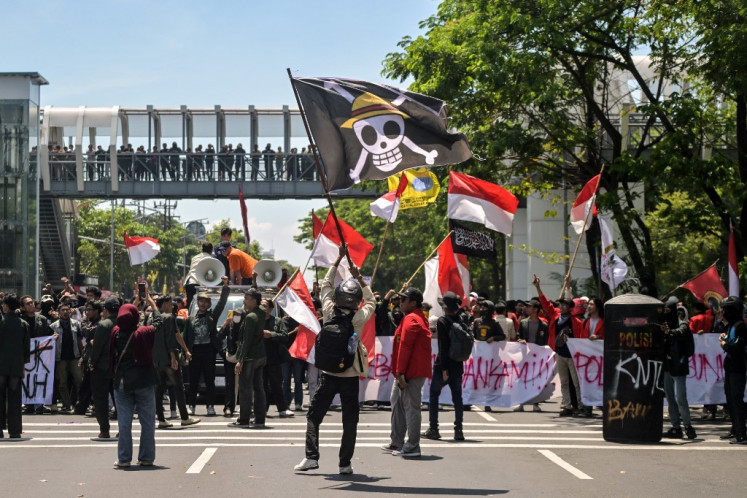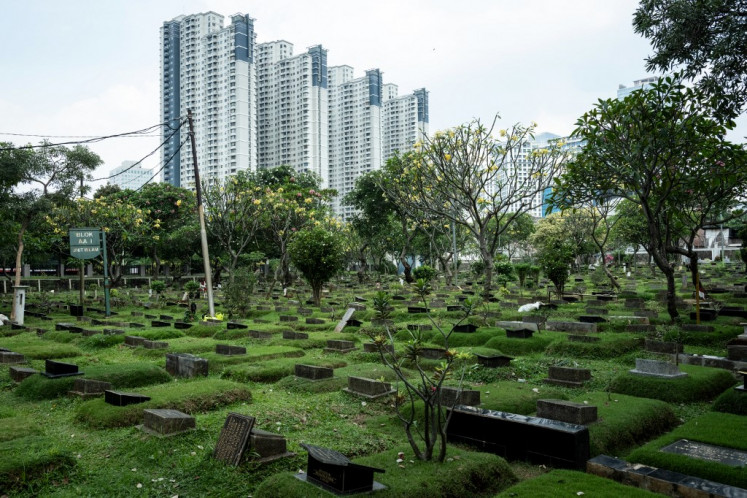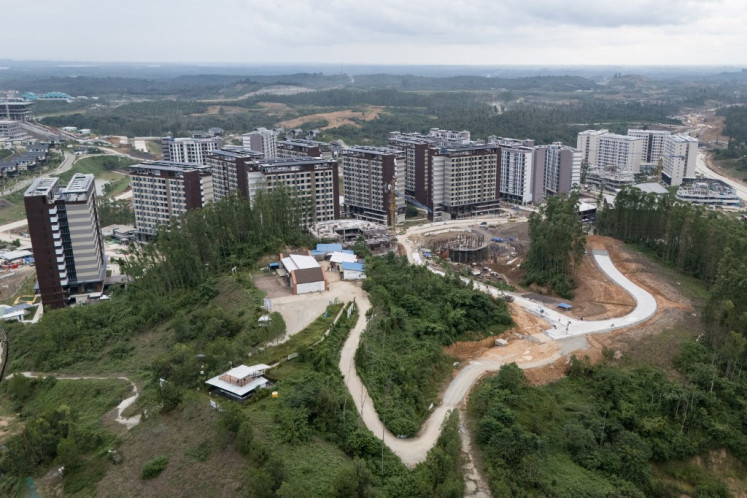Popular Reads
Top Results
Can't find what you're looking for?
View all search resultsPopular Reads
Top Results
Can't find what you're looking for?
View all search resultsGrowing nostalgia in Indonesia for life under Suharto
T-shirts portraying Indonesia's founding president Sukarno have long been popular but in recent months, those bearing imprints of his controversial successor Suharto have been more commonly seen too
Change text size
Gift Premium Articles
to Anyone
T
-shirts portraying Indonesia's founding president Sukarno have long been popular but in recent months, those bearing imprints of his controversial successor Suharto have been more commonly seen too.
Stickers of the strongman, who presided over Indonesia's economic transformation in his 32 years in office, from 1967 to 1998, have also become more visible on motorcycle windscreens, and car and truck windows.
These depict a smiling Suharto asking in Javanese: "How're things? They were better in my time, no?"
Little wonder then that leaders of Suharto's former party, Golkar, are hoping to tap on this nostalgia for life under Pak Harto, as he is commonly known, ahead of elections for Parliament in April.
This is as disenchantment with the current government grows, and as many marked the sixth anniversary of Suharto's death on Monday.
"Many stickers of Pak Harto are being sold," party chairman Aburizal Bakrie told Golkar cadres at a national coordination meeting last week.
"I'm certain those are not made by Golkar but made, sold and bought by the people. This is a sign that people want Golkar to be in charge again," he said.
It appears ironic that 15 years after the country opened up to democracy and experienced steady economic growth after Suharto's fall in 1998, Indonesians are once again desirous of a leader like him, in spite of his tight grip on society during his rule.
But observers said the cost of living has risen, and many feel the democracy they have gained has also been marked by rising inequality.
Dr Ari Dwipayana from Gadjah Mada University in Yogyakarta told The Straits Times that this longing for Suharto "is a criticism from people, of the state they find themselves in".
He said: "In spite of reformasi, corruption has become vulgar, out of hand and dissatisfaction is widespread. It doesn't mean they love the Suharto era but they want some semblance of the order it had.
"And political elites view this as a commodity they can tap on, even though the effect may be limited."
It is not just Golkar, which marks its 50th anniversary this year, that might gain from this longing for Suharto.
Golkar breakaways People's Conscience Party (Hanura) and Greater Indonesia Movement Party (Gerindra) have also seen their ratings surge in recent months.
Hanura is led by Suharto's last armed forces commander Wiranto, and Gerindra by former army special forces chief and Suharto's son-in-law Prabowo Subianto.
Gerindra deputy chairman Fadli Zon said on Twitter recently: "We don't want to return to the days of Pak Harto but learn from our mistakes and history.
"When people are fond of leaders like Sukarno or Suharto, it is a reflection of the failure of leaders of the moment," he added.
Renewed appreciation for the Suharto days comes as the former president's family opened a museum in June last year dedicated to his life, in his birthplace in Bantul, Yogyakarta. It includes the building where he was born in 1921. Visitors have included President Susilo Bambang Yudhoyono and Wiranto.
Dr Ikrar Nusa Bhakti, from the Indonesian Institute of Sciences, said thinking the Suharto era was better "doesn't make sense".
"On press freedom, the economy, political freedoms, it's quite clear we're much freer now. What was greater during Suharto's time?" he told Metro TV.
"And if Golkar wants to return to the Suharto-era leadership, what will the country be like?"










